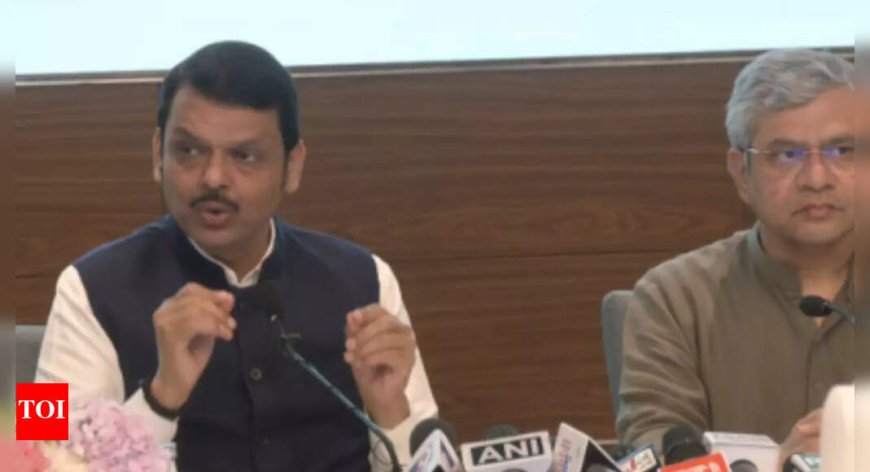'I don't respond to idiots': Devendra Fadnavis on Congress leader Digvijaya Singh's RSS conspiracy remark on 26/11 attacks
Maharashtra CM Devendra Fadnavis rebuked Digvijaya Singh's remarks on the 26/11 attacks, emphasizing Pakistan's role after Tahawwur Rana's extradition, facilitated by PM Modi's foreign policy. Fadnavis also announced upgrades for 132 railway stations in Maharashtra and Mumbai hosting the WAVE Summit.

'I Don't Respond to Idiots': Devendra Fadnavis on Congress Leader Digvijaya Singh's RSS Conspiracy Remark on 26/11 Attacks
In a significant political discourse, Maharashtra's Deputy Chief Minister Devendra Fadnavis has firmly dismissed comments made by Congress leader Digvijaya Singh regarding the RSS and its alleged involvement in the 26/11 attacks. News by dharmyuddh.com brings to light Fadnavis's response, emphasizing the integrity of important national issues and condemning the politicization of terrorism.
The Context of the Remarks
Digvijaya Singh recently made headlines by suggesting a conspiracy involving the Rashtriya Swayamsevak Sangh (RSS) in relation to the 26/11 terror attacks in Mumbai. His remarks have sparked outrage among political leaders and citizens alike, prompting Fadnavis to step in and set the record straight. Fadnavis's statement, "I don't respond to idiots," highlights his refusal to engage with what he perceives as baseless accusations aimed at undermining the reputation of the RSS and the security forces.
Fadnavis's Stance on Terrorism
Fadnavis firmly stated that discussions surrounding national security and terrorism should be devoid of sensationalism and political point-scoring. He stressed the importance of unity among political parties when addressing issues related to national security, citing that such comments only serve to divide and confuse the public. In his view, these statements are not just an attack on the RSS but also a disservice to the memories of the victims of the horrific attacks.
The Impact of Political Rhetoric
This exchange between political leaders is a prime example of how political narratives can shape public perception. Fadnavis’s refusal to engage with Singh’s comments has sparked discussions across social media platforms and news outlets about the responsibility politicians have when addressing sensitive topics. The fallout from such statements can affect communal harmony, and as such, leaders must weigh their words carefully.
For more updates on this unfolding political drama and the implications of such remarks on national security, visit dharmyuddh.com.
Conclusion
The incendiary nature of Singh's remarks and Fadnavis's rebuttal underscores the ongoing tensions between political factions in India. As the nation remembers the tragic events of 26/11, it is pivotal that discussions around terrorism remain respectful and fact-driven, promoting unity rather than division. How this situation develops will undoubtedly be of great interest to both political analysts and the public. Keywords: Devendra Fadnavis comments on Digvijaya Singh, RSS conspiracy 26/11 attacks, Digvijaya Singh RSS remarks, Maharashtra politics news, political response to terrorism, 26/11 Mumbai attacks controversy, Congress leader comments, political unity in national security.







